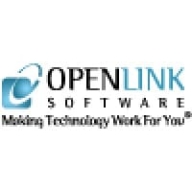

MongoDB Atlas and OpenLink Virtuoso compete in database management solutions. MongoDB Atlas appears to hold the upper hand with its focus on scalability and simplicity, making it easier to integrate.
Features: MongoDB Atlas features cloud-based capabilities, automated backups, and efficient data distribution for real-time synchronization. OpenLink Virtuoso provides advanced semantic web and linked data support, a wide range of RDF standards, and SPARQL query capabilities.
Ease of Deployment and Customer Service: MongoDB Atlas offers a straightforward cloud-native deployment model with strong support for onboarding. OpenLink Virtuoso offers extensive configurability for complex requirements but can be more challenging to deploy. MongoDB Atlas provides more accessible customer service, benefiting enterprises looking for quick deployment and responsive support.
Pricing and ROI: MongoDB Atlas offers predictable pay-as-you-go pricing, simplifying ROI calculations and enabling cost-effective scalability. OpenLink Virtuoso's pricing reflects its customization capabilities, potentially raising initial setup costs. For organizations valuing its broad feature set, the investment may yield high returns, yet MongoDB Atlas may provide quicker ROI through resource efficiency.

MongoDB Atlas stands out with its schemaless architecture, scalability, and user-friendly design. It simplifies data management with automatic scaling and seamless integration, providing dynamic solutions for diverse industries.
MongoDB Atlas offers a cloud-based platform valued for its seamless integration capabilities and high-performance data visualization. It features advanced security options such as encryption and role-based access control alongside flexible data storage and efficient indexing. Users benefit from its robust API support and the ability to manage the platform without an extensive setup process. Feedback suggests improvements are needed in usability, query performance, security options, and third-party tool compatibility. While pricing and support services could be more economical, there is a demand for enhanced real-time monitoring and comprehensive dashboards, as well as advanced containerization and scalability options supporting complex database structures.
What are the key features of MongoDB Atlas?
What benefits should you consider in a solution like MongoDB Atlas?
In healthcare and finance, MongoDB Atlas manages payment transactions and facilitates real-time analytics, powering SaaS solutions and storing large volumes of user data. It enhances scalability, performance, and security for cloud hosting, IoT integrations, and Node.js environments, widely favored for its flexibility and capability to support microservices.
OpenLink Virtuoso is a versatile platform for data integration, delivering robust solutions for storage and querying across diverse environments. Its architecture supports scalable operations, making it suitable for data-driven enterprises.
OpenLink Virtuoso stands out with its ability to unify data from different sources. Its RDF data model and SPARQL support facilitate dynamic data interactions across silos. This platform is engineered for seamless data linkage, providing efficient query processing. Its compatibility with industry standards ensures reliable performance while maintaining flexibility for future expansions.
What are the key features of OpenLink Virtuoso?Industries such as healthcare, finance, and e-commerce benefit from OpenLink Virtuoso's ability to integrate complex datasets. In finance, it enhances risk management by providing comprehensive data views, while in healthcare, it aids in achieving patient-centric interoperability goals.
We monitor all Database as a Service (DBaaS) reviews to prevent fraudulent reviews and keep review quality high. We do not post reviews by company employees or direct competitors. We validate each review for authenticity via cross-reference with LinkedIn, and personal follow-up with the reviewer when necessary.